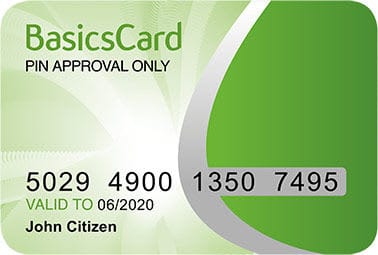
In July 2022, the federal Labor government introduced a bill to repeal the Cashless Debit Card, one of the two forms of income management (IM) currently applied in multiple sites across Australia.
That bill (known as the Social Security (Administration) Amendment (Repeal of Cashless Debit Card and Other Measures) Bill 2022) is currently subject to a Senate Community Affairs Legislation Committee inquiry, which will report to the Parliament by end of August.
The inquiry has to date received 77 written submissions and conducted four major public hearings, which suggests continued ideological division and polarisation regarding the merits or limitations of income management.
Income management is one of the existing forms of welfare conditionality applied by Australian governments whereby disadvantaged individuals and communities (usually those reliant on income support payments) are required to amend their behaviour or attitudes in order to demonstrate they deserve to remain eligible for a payment or service.
Other existing conditional programs include Work for the Dole and ParentsNext.
But IM is unique in that a set percentage of their payments – usually somewhere between 50% and 80% – is quarantined into a special account that can only be used to purchase essential household goods such as food, rent, clothing, education expenses, and energy bills.
Its stated intent is to discourage spending on drugs, alcohol and gambling, and by so doing reduce manifestations of socially harmful behaviour such as violence (particularly family violence), and child abuse and neglect.
The rationale for income management is closely connected to neoliberal philosophy whereby disadvantage is assumed to be the direct result of flawed individual actions, rather than connected to a broader structural or communal context.
IM was originally introduced in 2007, as part of the Howard Coalition government’s Northern Territory Emergency Response (NTER) targeting remote Indigenous communities. It was later extended by both Labor Party and Liberal-National Party Coalition governments to a wider range of groups and locations.
The 2007-2013 Labor government continued the existing income management program in the Northern Territory, and also expanded the program to sites such as Shepparton in rural Victoria, and Playford in Adelaide.

Most participants were placed on the BasicsCard, a personal identification number-protected debit card, which could only be used at authorised stores. The succeeding Coalition government, led by Tony Abbott, introduced the even more interventionist Cashless Debit Card (CDC) – a visa debit card – in 2015, based on recommendations from mining magnate Andrew Forrest’s government-commissioned Indigenous Jobs and Training Review.
Currently, about 42,000 Australians participate in IM programs, which mostly target those on working-age payments such as JobSeeker and Parenting Payment.
There are nearly 18,000 on the CDC, which is based in six locations – the Ceduna region in South Australia, the East Kimberley and Goldsfield regions in Western Australia, the Bundaberg and Hervey Bay (Hinkler) region in Queensland, the Northern Territory, and the Cape York region in far north Queensland.

The CDC is operated by two private card providers (Indue Ltd and the Traditional Credit Union), and controls 80% of participant income in the first four sites, but was amended to 50% in the NT, and a negotiated percentage in Cape York.
There are also more than 24,000 on the BasicsCard, which controls 50% of participant income, of whom more than 22,000 reside in the Northern Territory.
A significant majority of BasicsCard participants are Aboriginal and Torres Strait Islanders (hereafter Indigenous), and Indigenous Australians also comprise nearly half of CDC recipients.
The IM programs have been assessed by multiple government-commissioned reports, parliamentary inquiries, and independent research studies.
Australian governments have consistently asserted IM not only reduces dysfunctional behaviour that causes social harm, but also advances beneficial outcomes for participants in areas such as financial management, parenting capacity, and access to skills training and employment.
But research findings present only limited verifiable evidence of benefits for program participants. The results are, at best, mixed.
Some IM users have made gains in areas such as parenting capacity, financial management, and labour market participation, but equally, others have not.
A single mother placed on the income management program said the cashless debit card scheme is "government-sanctioned financial abuse".https://t.co/7Ranz1kGlm— NITV (@NITV) August 18, 2022
Some seem to have become more, rather than less, reliant on welfare services and programs. For those who appear to have acquired some benefits, it’s often difficult to separate the impact of IM from the influence of other health, education and social service programs.
There doesn’t seem to be any substantiated connection between involvement in IM programs, and greater inclusion in the mainstream economy and community.
Additionally, there’s been substantial criticism of IM from numerous community (and particularly Indigenous) groups within the respective sites. Their major concerns can be summarised as follows:
High administrative costs
It’s been estimated that governments have spent more than $170 million on funding the CDC programs alone, including $36 million during 2020-21. This seems to be a highly expensive program given it targets only a small percentage of income support recipients, and seems to have limited utility in meeting their needs or improving their life chances.
Indeed, a cost-benefit analysis conducted for the Department of Social Services in 2021 reported that the costs of the CDC outweighed the benefits by a ratio of six to one.
It’s arguable that these funds would be more effectively used to establish holistic social support services that would directly address the underlying causes of social disadvantage in the targeted locations.
Hidden social costs
Secondly, the CDC has major hidden social costs for participants. One of the key reasons for this is that the program is applied as a blanket measure to whole communities or groups of people on income support payments, including many who have never experienced problems with drugs or alcohol or gambling, rather than being targeted to those individuals with verified concerns.
Consequently, many IM participants experience a sense of social shame and stigma as a result of public perceptions that only drug and alcohol users and “dole bludgers” are placed on IM.
Associated costs include personal stress and anxiety based on fear that the card will fail to function, logistical faults including additional bank fees that can directly result in financial hardship, and a general erosion of personal agency and choice given the limits on using cash to purchase necessary items. Overall, IM participants seem to feel more, rather than less, excluded from mainstream community and social activities.
Discrimination against Indigenous Australians
It’s contended that the disproportionate representation of Indigenous Australians as IM participants involves a form of racial discrimination and ongoing colonialism intended to control and disempower communities, and violate their human rights.
The CDC doesn’t appear to advance the self-determination of Indigenous communities to make their own decisions, and appears to be incompatible with the partnership principles included in the national Closing the Gap agreement negotiated by the federal government with Indigenous community leaders.
Failure to address social disadvantage
Fourthly, the CDC is disempowering, and fails to address the root causes of social disadvantage. The CDC doesn’t tackle the root causes of gambling or substance use, which both have deep-seated structural and historical causes such as the impact of intergenerational disadvantage, colonisation, trauma and racism.
Instead, funding should arguably be shifted to key locally-based social support and healthcare programs targeting family violence, elder abuse, mental health, parenting skills, financial counselling, the availability of affordable housing, withdrawal services for those experiencing addiction, and education and employment skills and training.
A further major priority is raising the rate of the JobSeeker payment for the unemployed so that their incomes lie above the poverty line.
A failure in consultation
Finally, the CDC was not co-designed with affected communities and participants. Coalition governments insisted that the CDC (in contrast to the BasicsCard) was introduced via a bottom-up partnership with local communities and leaders (including Indigenous community organisations).
But this is not what happened. Rather, the government designed the card as an outcome of Andrew Forrest’s inquiry, then offered the card on a “take it or leave it” basis to local governments and Indigenous leaders in some locations who were not necessarily representative of those communities.
There were no co-design consultations with key local stakeholders (particularly drawing on the lived experience of service users and their families, or the local expertise of service providers and other key community groups) to identify major social needs, and their views on best practice and policy responses. The CDC has definitely not empowered the targeted communities to determine their own policy directions.
Where to from here?
The existing bill refers only to the CDC participants and sites, but makes no reference to the more than 24,000 BasicsCard participants in multiple sites.
It seems that the government is planning to consult with community groups and leaders in each CDC site, then make a decision as to whether some form of IM will continue or not, possibly on a community-sanctioned or voluntary basis.
It would arguably be far better if the government started again by consulting key stakeholders in all CDC and BasicsCard sites. A genuine co-design partnership with local communities could inform a cost-effective program that addresses major social problems and needs on the basis of real evidence as to what works.





